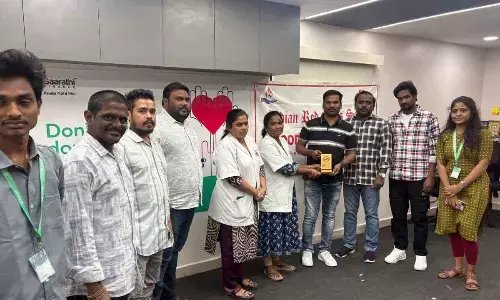Antibiotic resistance making kidney infections more deadly

Medication-resistant bacteria are making it more difficult to treat a common but severe kidney infection, says a study. Pyelonephritis infection of the kidney usually caused by E. coli bacteria and which can start as a urinary tract infection -- causes fever, back pain and vomiting.
Medication-resistant bacteria are making it more difficult to treat a common but severe kidney infection, says a study. Pyelonephritis infection of the kidney usually caused by E. coli bacteria and which can start as a urinary tract infection -- causes fever, back pain and vomiting.
About half of people infected require hospitalisation. If not treated with effective antibiotics, it can cause sepsis and death. "This is a very real example of the threat posed by the emergence of new antibiotic-resistant strains of bacteria, which greatly complicates treatment of infection," said the study's lead author David Talan, Professor at David Geffen School of Medicine at University of California, Los Angeles.
In an earlier study based on data from 10 large hospital emergency departments in the US, almost 12 per cent of people diagnosed with pyelonephritis had infections resistant to the standard class of antibiotic used in treatment -- fluoroquinolone. That is up from four per cent in a similar study conducted a decade ago.
The new study -- published in the jurnal Emerging Infectious Diseases -- also documents the emergence of infections caused by a specific strain of E. coli that is resistant to additional types of antibiotics, severely limiting treatment options. That strain, dubbed ESBL for the antibiotic-destroying enzymes it produces (extended-spectrum beta-lactamases), was not detected in the previous study.
Currently, there are only a few intravenous antibiotic options to treat ESBL-related infections, and no oral antibiotics that are consistently effective.
The study included 453 people diagnosed with kidney infection. The study participants were diagnosed between July 2013 and December 2014 in 10 emergency departments at large hospitals in the US.
The rates of ESBL-related infections varied from zero per cent to more than 20 per cent, depending on the location of the emergency room and patient risk factors. About three of every four people infected with ESBL-producing E. coli were initially treated with antibiotics ineffective against that particular strain of bacteria, placing them at risk for poor outcomes, the researchers reported.

















